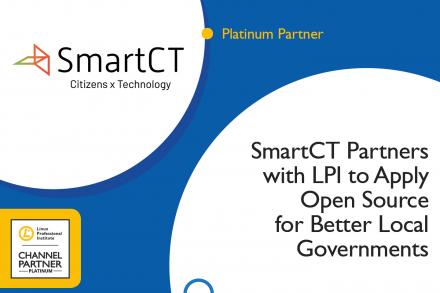SmartCT Partners with LPI to Apply Open Source for Better Local Governments

SmartCT (Facebook page), a community organization in the Philippines, has recently become a Linux Professional Institute (LPI) partner at the highest level, Platinum sponsorship. SmartCT presents an unusual and inspiring model for LPI partnership. Unlike most partners, which offer training, products, or services directly related to free and open source software, SmartCT is devoted to a socio-economic goal: To create a movement that transforms the way local governments and citizens think about, plan, and carry out digital transformation by building a culture of openness, data awareness, and interoperability.
SmartCT, a tech nonprofit and a pioneer in the smart cities field, provides data capabilities to the local governments and their residents in the digital era through its data and its digital and technological literacy training. The nonprofit also offers services such as open data portals, geospatial data tools, content management systems for local governments, and open-source capacity building and development. Currently, the nonprofit focuses its efforts on developing countries, such as the Philippines, which has about 1,634 cities and municipalities.
The organizers of SmartCT want an inclusive, people-driven mobilization of technology and not just a top-down approach. Transparency and collaboration are listed among the organization’s core values. One of their principles is to “ensure that the data, technologies, and smart city services will remain open, free, and interoperable.” Thus, the open source movement, and particularly free and open source software, are an important plank in their strategy. The partnership with LPI came as a natural step toward SmartCT’s goals.
Kris Libunao, Executive Director of SmartCT, has a long history of leadership in nonprofit development organizations and strategic government consultancies, possessing experience in technology and data for policy decision-making. She writes, “We embrace open source to improve government efficiency while speeding up innovation in the public sector, especially in local governments.”